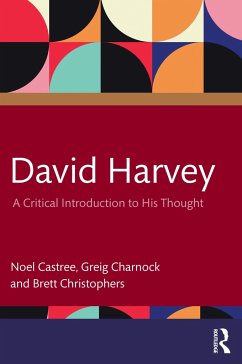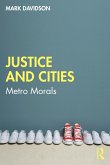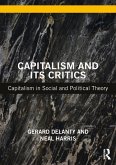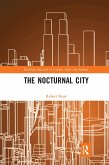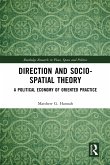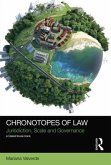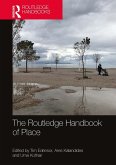David Harvey is among the most influential Marxist thinkers of the last half century. This book offers a lucid and authoritative introduction to his work, with a structure designed to reflect the enduring topics and insights that serve to unify Harvey's writings over a long period of time.
Harvey's writings have exerted huge influence within the social sciences and the humanities. In addition, his work now commands a global readership among Left political activists and those interested in current world affairs. Harvey's central preoccupation is capitalism and the impacts of its growth-obsessed, contradictory dynamics. His name is synonymous with key analytical concepts like 'the spatial fix' and 'accumulation by dispossession'. This critical introduction to his thought is an essential companion for both new and more experienced readers. The critique of capitalism is one of the most important undertakings of our time, and Harvey's work offers powerful tools to help us see why a 'softer' capitalism is insufficient and a post-capitalist future is necessary.
This book is an important resource for scholars and graduate students in geography, politics and many other disciplines across the social sciences and humanities.
Harvey's writings have exerted huge influence within the social sciences and the humanities. In addition, his work now commands a global readership among Left political activists and those interested in current world affairs. Harvey's central preoccupation is capitalism and the impacts of its growth-obsessed, contradictory dynamics. His name is synonymous with key analytical concepts like 'the spatial fix' and 'accumulation by dispossession'. This critical introduction to his thought is an essential companion for both new and more experienced readers. The critique of capitalism is one of the most important undertakings of our time, and Harvey's work offers powerful tools to help us see why a 'softer' capitalism is insufficient and a post-capitalist future is necessary.
This book is an important resource for scholars and graduate students in geography, politics and many other disciplines across the social sciences and humanities.
"An indispensable guide to the life and work of one of the greatest Marxist intellectuals of his generation. The authors provide a far-reaching overview of Harvey's intellectual project and the way it has developed over time, which allows the reader to build a much deeper relationship with Harvey's oeuvre than that they might gain by reading a few key texts from within a specific discipline - much in the same way that Harvey's familiarity with Marx has made his Introduction to Capital the most popular accompaniment to Marx's work."
Grace Blakeley, author of Stolen: How to save the world from financialisation
"I arrived at the Johns Hopkins University in 1997. By 1999 I was co-teaching a graduate seminar with David Harvey on Gramsci and Keynes. I went in there as a recovered Marxist. I came out having recovered my Marxism. That's what Harvey will do to you."
Mark Blyth, Brown University, USA, author of Austerity: The History of a Dangerous Idea and co-author of Angrynomics
"No living intellectual has done more to reinvigorate Marxism than David Harvey. True to its spirit, he has insisted on the unbreakable link between scientific research and political practice. Here, for the first time, we have a survey of Harvey's entire oeuvre - but not a mere summary or for-dummies: Castree, Charnock and Christophers engage critically with all the issues swirling through his work, down to the question of how to change the world. In wonderfully accessible prose, they catch a genius in motion, always attuned to the latest developments in capitalism. This will be a book to chew on, for Harvey aficionados and newcomers alike, and for everyone grappling with the unbearable contradictions of this world order."
Andreas Malm, Lund University, Sweden, author of Fossil Capital, The Progress of the Storm, and How to Blow Up a Pipeline
Grace Blakeley, author of Stolen: How to save the world from financialisation
"I arrived at the Johns Hopkins University in 1997. By 1999 I was co-teaching a graduate seminar with David Harvey on Gramsci and Keynes. I went in there as a recovered Marxist. I came out having recovered my Marxism. That's what Harvey will do to you."
Mark Blyth, Brown University, USA, author of Austerity: The History of a Dangerous Idea and co-author of Angrynomics
"No living intellectual has done more to reinvigorate Marxism than David Harvey. True to its spirit, he has insisted on the unbreakable link between scientific research and political practice. Here, for the first time, we have a survey of Harvey's entire oeuvre - but not a mere summary or for-dummies: Castree, Charnock and Christophers engage critically with all the issues swirling through his work, down to the question of how to change the world. In wonderfully accessible prose, they catch a genius in motion, always attuned to the latest developments in capitalism. This will be a book to chew on, for Harvey aficionados and newcomers alike, and for everyone grappling with the unbearable contradictions of this world order."
Andreas Malm, Lund University, Sweden, author of Fossil Capital, The Progress of the Storm, and How to Blow Up a Pipeline
"The debates in David Harvey: A Critical Reader highlightthe importance of thinking about space as something materiallyproduced and in process ... The discussion also leads toconsiderations of the urban as a way of life. The tension betweenthese two strands makes this anthology fertile ground for attemptsat a synthesis."
Radical Philosophy
"David Harvey: A Critical Reader is a landmark assessmentof the work, and diverse influences, of this leadinggeographer-cum-social theorist. No stodgy hagiography, theReader presents a series of punchy, personal, political, andoften profound reflections on four decades of Harvey'scontributions. In locating Harvey and his interlocutors, theReader also suggestively maps out the shifting terrain ofcritical thinking around the spatialities of late capitalism."Jamie Peck, University of Wisconsin-Madison
"Few contemporary thinkers have been untouched by David Harvey,even in opposition, as this collection of brilliant essays attests.And, after the critics' scalpels have done their bit of nipand tuck, he comes off still looking rather well for his age."R. A. Walker, University of California, Berkeley
"The Critical Reader offers a set of inspiring andnon-hagiographic reflections on the intellectual legacy of DavidHarvey that will be an invaluable read not only for geographers butfor all social scientists committed to the pursuit of a criticaland transformative understanding of the world."
Ugo Rossi, Universita L'Orientale of Naples, Italy
Radical Philosophy
"David Harvey: A Critical Reader is a landmark assessmentof the work, and diverse influences, of this leadinggeographer-cum-social theorist. No stodgy hagiography, theReader presents a series of punchy, personal, political, andoften profound reflections on four decades of Harvey'scontributions. In locating Harvey and his interlocutors, theReader also suggestively maps out the shifting terrain ofcritical thinking around the spatialities of late capitalism."Jamie Peck, University of Wisconsin-Madison
"Few contemporary thinkers have been untouched by David Harvey,even in opposition, as this collection of brilliant essays attests.And, after the critics' scalpels have done their bit of nipand tuck, he comes off still looking rather well for his age."R. A. Walker, University of California, Berkeley
"The Critical Reader offers a set of inspiring andnon-hagiographic reflections on the intellectual legacy of DavidHarvey that will be an invaluable read not only for geographers butfor all social scientists committed to the pursuit of a criticaland transformative understanding of the world."
Ugo Rossi, Universita L'Orientale of Naples, Italy

